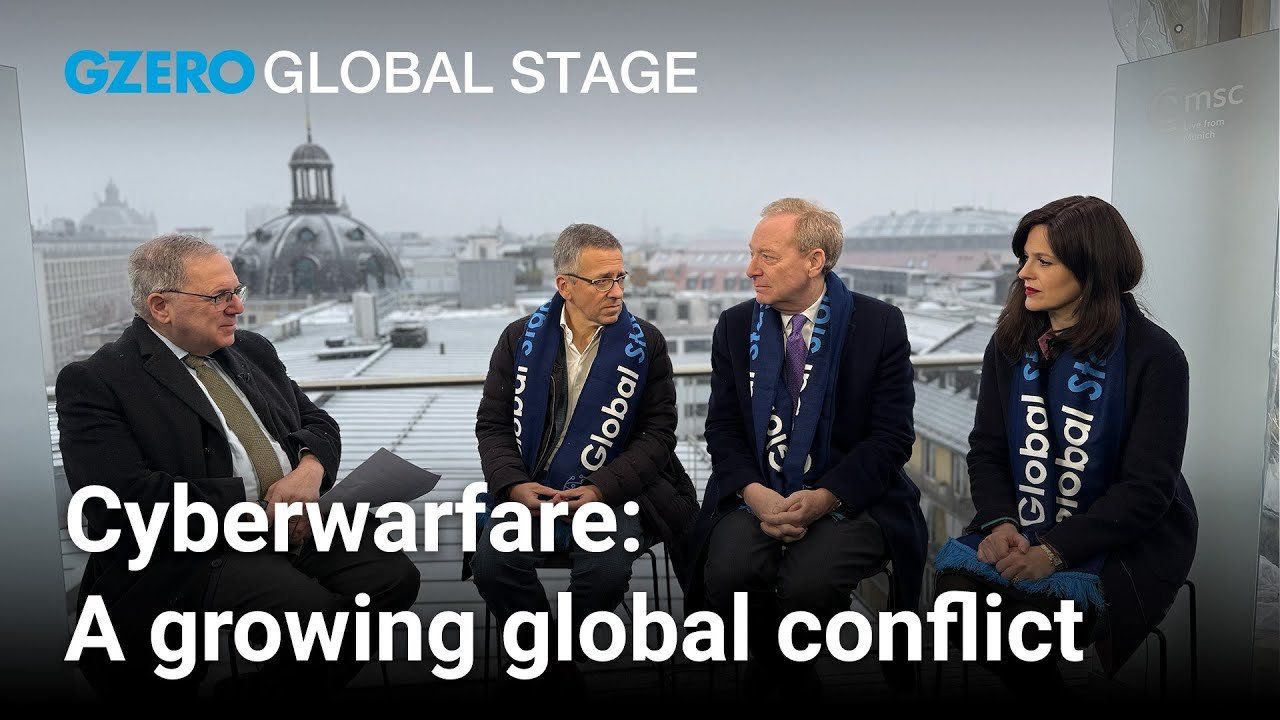February 26, 2025
Cyberwarfare is escalating, with major players like China, Russia, Iran, and North Korea using digital attacks to advance geopolitical goals. As Anne Neuberger explains, “they play out with regard to sometimes groups aligned with countries or sometimes financially driven.” She points to the cyberattack Russia launched the night before its invasion of Ukraine, disrupting Ukraine’s military satellites, as a prime example. Neuberger also warns about the growing influence of Russian-backed criminal groups that “are impacting infrastructure around the world, notably significant growth in the healthcare sector, through ransomware attacks.” With cyber threats becoming more complex, it is sparking fears about long-term vulnerabilities that countries must be aware of.
Watch the full conversation: Is the Europe-US rift leaving us all vulnerable?
This conversation is presented by GZERO in partnership with Microsoft from the 2025 Munich Security Conference in Munich, Germany. The Global Stage series convenes global leaders for critical conversations on the geopolitical and technological trends shaping our world.
More For You
Most Popular
- YouTube
Will AI change the balance of power in the world? At the 2026 World Economic Forum in Davos, Ian Bremmer addresses how artificial intelligence could redefine global politics, human behavior, and societal stability.
Ian Bremmer sits down with Finland’s President Alexander Stubb and the IMF’s Kristalina Georgieva on the sidelines of the World Economic Forum to discuss President Trump’s Greenland threats, the state of the global economy, and the future of the transatlantic relationship.
- YouTube
GZERO World heads to the World Economic Forum in Davos, where Ian Bremmer lookst at how President Trump’s second term is rattling Europe, reshaping both transatlantic relations and the global economy, with Finland’s President Alexander Stubb and the IMF’s Kristalina Georgieva.
© 2025 GZERO Media. All Rights Reserved | A Eurasia Group media company.
